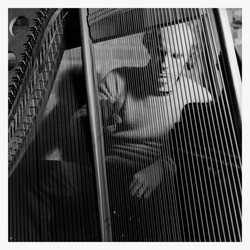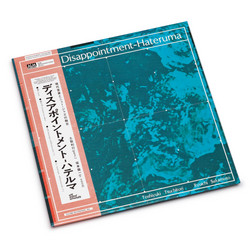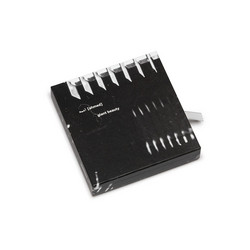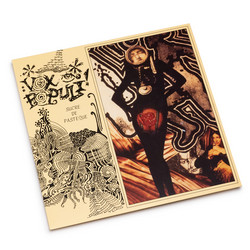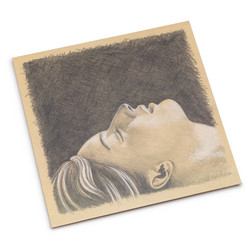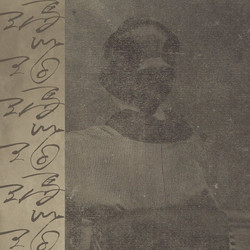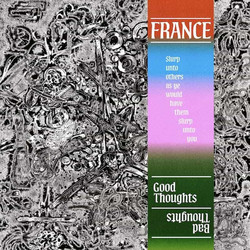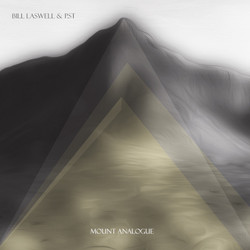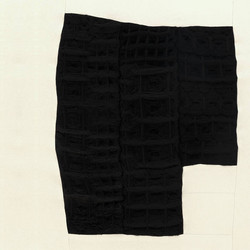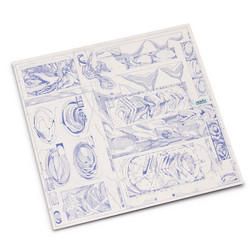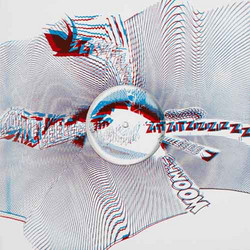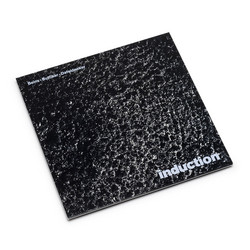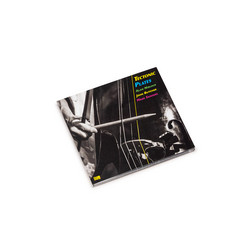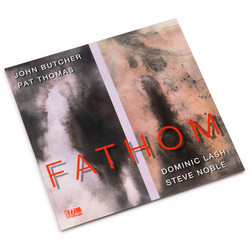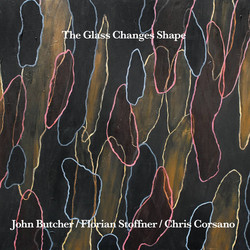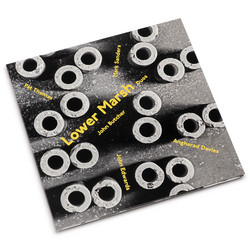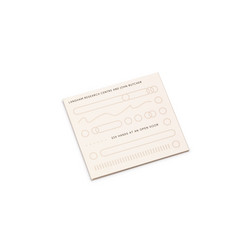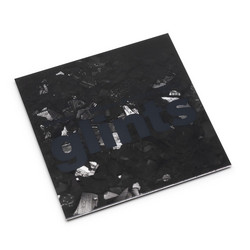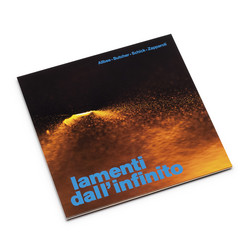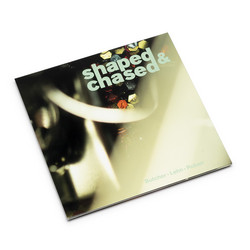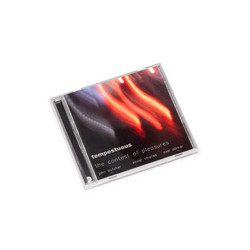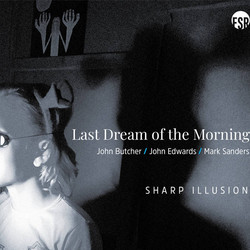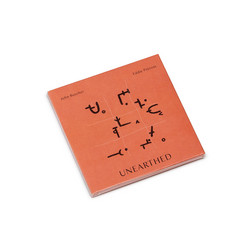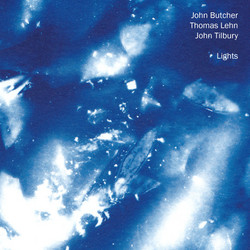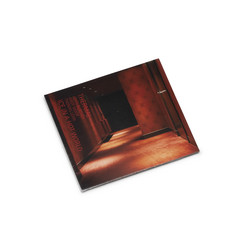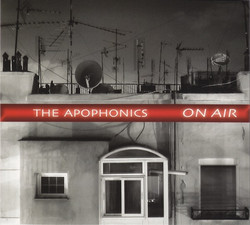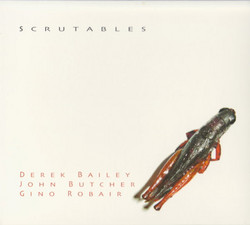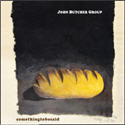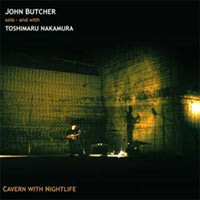Two decades ago, saxophonist John Butcher abandoned his doctoral pursuits in theoretical physics to pursue a life in improvised music and has since become one of the genre’s leading instrumental and structural innovators. Butcher’s pursuit of extended techniques has yielded and continues to yield, as indicated by this most recent solo outing, a treasure trove of unfathomable timbral and dynamic possibilities for an instrument whose role in experimental music seems to consistently teeter on the verge of stagnation. Unlike many saxophonists, who too often rely on a succession of clever tricks haphazardly strung together with little regard to musical architecture, Butcher retains a composerly improvisatory sense that holds focused motivic constructions on equal plane with radical experiments in tone and color. On Invisible Ear, the saxophonist extends these virtues into his first solo investigation of the electronically augmented saxophone. Butcher’s reawakened interest in close-miking and feedback techniques – he had previously experimented with their usage in the early 1980s – owes much to his recent work in electronically augmented groups such as Polwechsel and collaborations with other computerists and real-time manipulators. Given the sobriety of his work with Polwechsel and his academic past, the listener might be tempted to approach the work with the expectation of a certain scientific rigidity. Invisible Ear proves such preconceptions to be not wholly unfounded, as each track selects a fixed set of sounds (a handful of steam-gasp whines, a collection of delicate bell pulses) and probes their permutations and limitations to exhaustion. Fortunately for listeners, Butcher peppers his single-minded pursuits with an ample dose of surprise, playing in the middle ground between rationality and spontaneity with a grace that spares the record from the maladies of improvised music’s dreaded “one track, one trick” syndrome. Butcher’s gift for balancing the structured and unpredictable appears most readily on those tracks that feature close-miking and feedback tenor- a horn equipped with a readily excited mic lodged deep within its bell. In his feedback playing, the saxophone is converted from an extension of the lungs to a conductor of electrical activity between the mic and amp from which Butcher conjures a fantastic collection of buoyant metallic bubbles and ear-clearing rasps. “Streamers” rings out like an otherworldly vibraphone stroked with magnetic mallets as Butcher teases a ebbing feedback drone with plunking key slaps, while “... shrilling reed freakout” and “a controversial fix for...” growl like a bagpipe coughing up iron filings. “Magnetic bottle,” a study in agitated difference tones, stands as the most monolithic of the four feedback tenor tracks yet conjures plenty of excitement from its crud-coughing tone and relentless, grinding buzz. Several of the close miked saxophone tracks sans feedback mine similar terrain – most notably the dual-voiced reed squeak of “swan style” and the wind-scraped sferics on “bright field” – with a more delicate touch than their heavily amplified counterparts. Butcher’s close-miked approach also allows for exploration of the lower end of the dynamic spectrum in the form of magnified breath tones, exemplified by the breezy tendrils of “dark field” and the granular synthesis mimicry of “cup anatomical.” Curiously, Butcher includes three thick multi-tracked saxophone pieces on this album seemingly dedicated to a magnification of the sax’s more minute phenomenon and to the distinctive solo voice. Both “what remains” and “atelier” craft a dark and cinematic air through tidal gatherings of massed saxophone flutters that gather into churning clouds of overtones and distressed warbling, but their gravity seems unusually calculated next to the more extemporaneous offerings of the amplified sax pieces. “The importance of gossip,” the album’s gorgeous centerpiece, emerges as a more coherent addition to the true solo works by virtue of a spaciousness that defies its seven amassed feedback tenors. Key clicks plunk beneath a light-flecked ceiling of synthesizer drone and above rumbles of shadowy and indeterminate origin. Those looking for a comprehensive view of the electronically assisted saxophone will likely appreciate the density and atmosphere of Butcher’s heavier multi-track contributions – they’re undeniably powerful in their own right – but those listeners in search of more stylistically consistent fare are likely to gravitate toward the more delicate hues of the middle track’s feedback rippling. Perhaps the most impressive aspect of Invisible Ear is its consistency both within itself and within the larger context of Butcher’s previous work. Here the addition of electronics serves neither the function of introducing indeterminacy – Butcher’s sense of control and “calculated surprise” remains plainly evident throughout – nor signaling the abandonment of the saxophonist’s previous work, but rather to extend in the truest sense the wealth of gestures acquired in his many years of seeking holes in his instrument’s boundaries. For beginners approaching Butcher’s work from the perspective of electroacoustic improvisation, Invisible Ear constitutes a clearly stated bridge between the contemporary electronics community and the European free improvisation tradition. For those already acclimated to Butcher’s unique soundworld, this record surveys a new facet of the saxophonist’s work found somewhere between the lab coat tweaking of his Polwechsel work and the marine biology of Erstwhile’s Wrapped Islands . With equal nods to science and poetry, Butcher’s first fully electronics-aided efforts stakes out bold new territory for both artist and listener alike – a recommended listen, and the 600 pressed copies are likely to disappear soon. Catch one while you can.
Details
Cat. number: wow 03
Year: 2010
Notes:
Reissue of the long out-of-print fringes 2003 limited issue. John Butcher - saxophones; acoustic, close-miked, amplified, feedbacking. Solo and multitracked. Sleeve notes by David Toop. 'The results have more in common with the work of Xenakis, Hafler Trio and CM von Hausswolff than any jazz musician; a true measure of their far-reaching nature.' By Everett Jang Perdue (Dusted).
